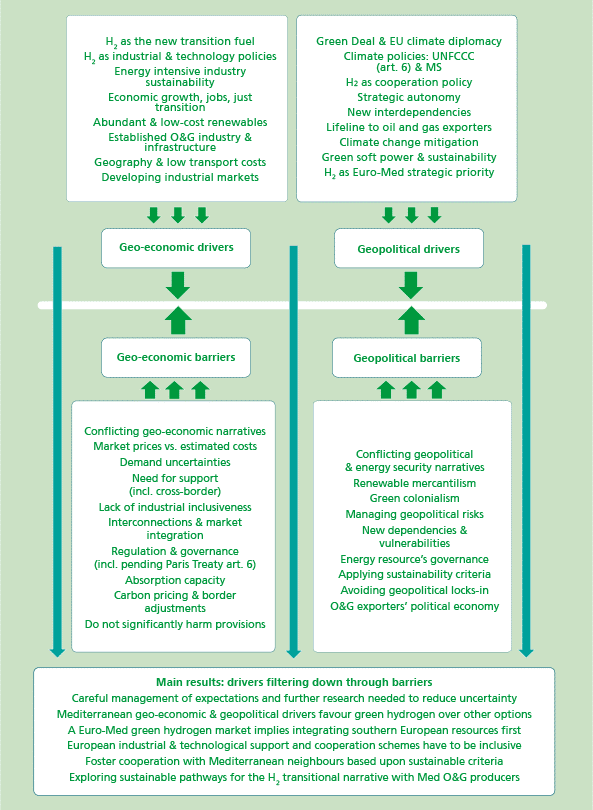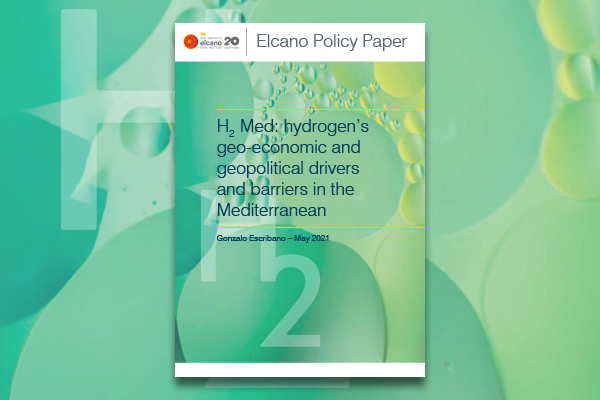Executive summary
This policy paper aims to offer a preliminary assessment of the geo-economic and geopolitical drivers and barriers for the development of a hydrogen market that integrates both European and Mediterranean neighbours’ renewable resources. The methods used include a review of the literature related to hydrogen in the Mediterranean, from European H2 strategies and industry and think tank reports to academic research, as well as stakeholder consultations.
Highlights
1. The common elements in European hydrogen strategies constitute significant drivers of H2 market development, but partial inconsistency in some of their external approaches (i.e., self-sufficiency vs cross-border trade) might constitute geo-economic and geopolitical barriers to market development and integration.
2. Several geo-economic drivers support green hydrogen in the Mediterranean: abundant renewable resources, existing infrastructures and industry, and relatively low transport costs when compared with other origins. However, uncertainties remain regarding prices, coverage of potential support measures and regulation, including carbon pricing alignment. This picture tends to favour intra-European integration and incentivises neighbours to converge towards EU’s climate policy.
3. H2 Mediterranean geopolitics exhibits both drivers and barriers regarding energy security, sustainability, governance, and foreign policy. A geopolitically sustainable merit order would prioritise European integration and promote cooperation with those neighbours where geopolitical drivers clearly outweigh barriers.
4. As shown in Figure 1, from this preliminary assessment the key messages regarding the future development of H2 markets in the Mediterranean are:
- A careful management of expectations and further research are needed to reduce the uncertainties surrounding hydrogen in the Mediterranean.
- Both Mediterranean geo-economic and geopolitical drivers tend to favour renewable hydrogen over other options.
- The development of Euro-Mediterranean green hydrogen markets implies integrating southern European resources first by building South-North corridors.
- There is a demand for ensuring that European support and cooperation schemes are inclusive and open to all member States and eligible neighbours.
- Cooperation with Mediterranean neighbours is to be based upon sustainability criteria.




